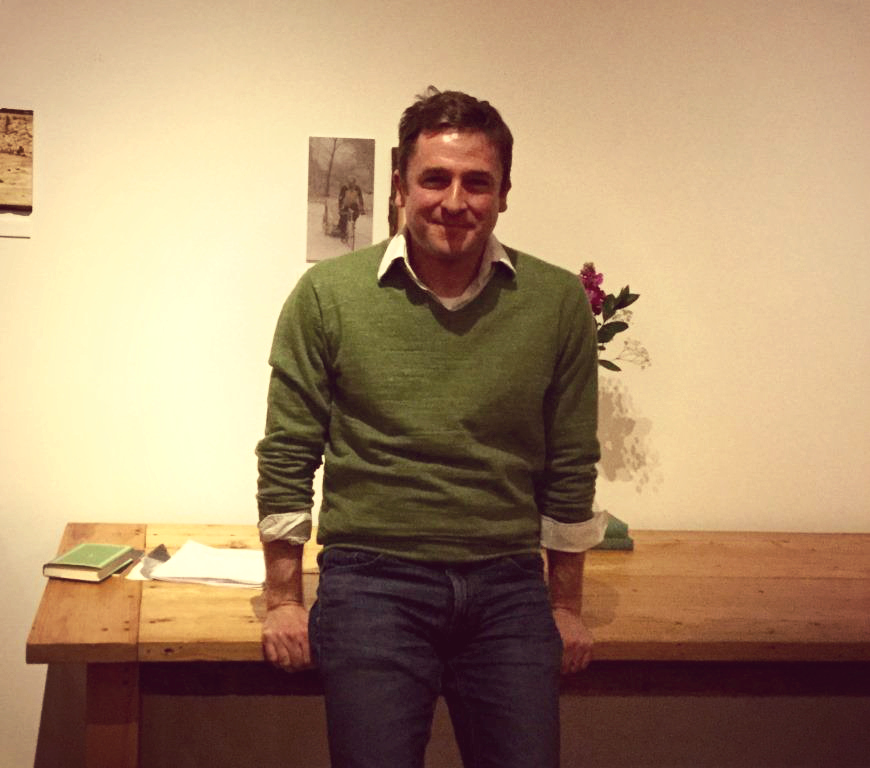~From English Department Communications Intern Ashley Alfirevic

Walking up to the Wolverine Farm Letterpress and Publick House, it instantly felt like quintessential Fort Collins. The smell of new, raw wood mingled with looseleaf tea and amber microbrews. Actual bikes, pictures of bikes, and pictures of people on bikes lined the walls. Far from overly boisterous, the small and subtle details – old turquoise book spines, purple carnations, and small white flowers I’ve never quite learned the names of – captured the most attention.
It only felt appropriate for Dan Beachy-Quick’s Pub Talk: “The Poem, the Shield, and the Ardent Pursuit.” A provocative exploration of the relationship between poetry and violence, Dan’s talk drew ties between the affront of brutality and the ambiguity of verse, where killing often straddles the line between horror and heroism.
The talk began slowly, with a tortoise. In order to make the lyre, the young Hermes killed the animal, in that casually violent way that Greek mythology tends to do, and strung its innards for strings. Then, eternally rambunctious, Hermes fails in an effort to steal Apollo’s cows, and in recompense offers up the lyre. The God of Poetry, Apollo handles an instrument made from the easily executed strikes against the tortoise’s shell. The tool of poetry emerged from a violent act.
Dan discussed how the shields of Greek legends both “invite and bear damage.” Like poetry, the shields use images as a “magical protection you stand beneath,” sporting a Gorgon’s visage. Combining syllables retrieved from ancient poetry and personal stories, Dan’s poetry contends that shields, unlike the songs of the lyre, do not deny but do not obsess over the damage borne inside.
The talk beautifully navigated through what felt like a comprehensive overview of great works and their histories of violence, stretching from the muses to Medusa, Crassus to Keats, in an entrancing way that felt like poetry without performance. Throughout, Dan talked in a measured tone that simultaneously kept you focused on the excerpts he was reading and allowed you to get wrapped up in thought. The breaks in this careful countenance, brief flashes of anger and sadness, came when recalling reading a poem about Charles Whitman while, in a surreal moment, news of the Columbine shooting broadcasted simultaneously on the radio. Moving from Greek literature to modern tragedies and back again, Dan discussed how poetry comes to us as an ardent pursuit, to help us refrain from our desires and become students of the damage of violence. For all the war and death in the Iliad, it produced one of the most empathetic and human moments in the face of suffering, as the conflict’s best archer lays immortally wounded: “I feel you in your pain. I feel you in your sorrow.”
Though “the string of the lyre and the string of the bow are the same,” and poetry toes the line between ambiguity and atrocity, Dan closed by reminding us that poetry strengthens “the need to stay wounded, to resist the urge to heal.” He called for us to let down our shields and open up to receive, to let the world harm as it must.